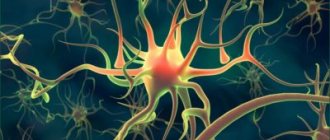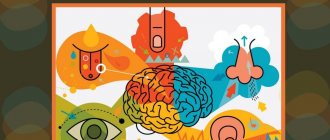The moral character of modern society is determined by very specific points that affect the general system of values. An individual is often judged by what position he occupies in society and what moral criteria he prefers. In most cases, certain norms of behavior are imposed on individuals. The moral character of a person is a component that is sure to cause numerous disputes. The fact is that all people are different.
What is of some value to one individual may have absolutely no value to another. People tend to judge each other just because their interests differ.
Description of the concept
Moral character is a phenomenon that is present in every society. This is a set of certain characteristics inherent in a particular society. In order to exist safely in it, you must necessarily adapt to the opinion of the majority. Without a doubt, people can be judged only for the fact that they want to have their own opinion and strive to somehow defend it. At the same time, moral character always remains something unshakable, necessary and spiritually significant. Let's consider the main characteristics of the concept.
Arguments from life
Moral choices are much more common in real-life examples than in literary works. Already in childhood, the child will have to make his first volitional decisions. For example, a schoolboy dreamed of going for a walk with friends after school, but earlier he had already promised to help his parents with the cleaning. A child needs to choose between fun and duty.
Compared to other examples from the literature, this situation cannot be considered serious. However, it is in childhood that the moral values that will guide a person throughout his life are laid down.
A teenager is faced with the problem of moral choice in the classroom, in the yard, and even in his own family. Parents, teachers, mentors, and older comrades help to overcome the difficulties of choice.
As adults, people face more complex choices. Wanting to achieve temporary success at work or in personal life, a person is often guided by fleeting values. You have to make a choice between material wealth and conscience, feelings and position in society, security and duty, comfort and justice.
The main difficulty of the issue is that there is no clearly right or wrong moral choice. Morality is only internal attitudes , so first of all, each person needs to decide on their own life values and priorities.
Politeness
This is something without which, in principle, it is impossible to exist comfortably in any established team. A polite person commands respect, recognition and praise. His actions are automatically approved, even if they are new and incomprehensible to the majority. Anyone who knows how to behave adequately to the current situation always ends up in a better position.
Politeness as a personal characteristic implies the presence of modesty. If a person does not expose himself to public scrutiny, or does not try to somehow infringe on others, then he is often credited with a high moral character.
Epithets for the word “landmarks”
Moral, moral, spiritual, vital, reliable, clear, noticeable, correct, chosen, imposed, unique, original, recognized, accurate, basic, familiar, significant, faithful, main, important, united, best, definite, primary, last, new, different, historical, approximate, uncertain, suitable, necessary, convenient, regular, natural, internal, external, disappeared, distant, long-awaited, cherished, concrete, unknown, low, high, unclear, basic, foggy, ghostly, capital, world, national.
Tact
Unfortunately, many people forget about this when it comes to defending their own opinion or expressing their attitude on any issue. A sense of tact helps us in cases where we need to show delicacy and act as carefully as possible. Many people believe that a tactful person has a high moral character. After all, before taking any step, he will think many times and choose the right words so as not to offend anyone. Tactfulness is an integral feature of a well-mannered person who knows what he wants to achieve in life. Although sometimes it can be difficult to be gentle, it is worth the effort.
The desire to be useful
Moral character presupposes that we are doing something that will bring something pleasant to others. An individual cannot live only for himself, guided in everything exclusively by personal motives. Otherwise, some spiritual aspirations begin to be lost, and the need to act selflessly disappears altogether. The desire to be useful can be called an extremely significant characteristic that helps to take a worthy place in this world. If a person wants to please others and does it sincerely, he soon discovers that the process itself brings him joy. If we benefit those around us, then we ourselves, of course, become much happier.
Ways to develop moral qualities
Let's move from theory to practice and consider ways that can help modern man become more moral and conscious.
Reading classic literature
When communicating, it is almost always noticeable when a person reads a lot of classics - he has a rich vocabulary, he can express his thoughts concisely and competently.
In addition, works from the school curriculum, which at one time were read “for show,” can bring a completely different effect upon reaching a certain age.
Read more: Benefits of reading books
Over time, it becomes clear to us why the heroes of the works behave this way and not otherwise. We return to those times and begin to delve into the true concept of love, honor and conscience.
Classic books take us away from the realities of the modern world to a time when the concept of morality was as mandatory as speaking a foreign language in modern companies today.
Books and trainings
Books
It would seem that in the modern abundance of literature and information on various topics one can find everything one needs. In fact, it is not so easy to find something worthwhile among low-grade novels, creations of self-proclaimed psychologists, astrologers and psychics.
If you go to the library and make a request for books on the development of moral qualities, then, most likely, the reader will receive several copies that are twenty or thirty years old. This kind of literature was used by teachers at a time when there was no widespread access to the Internet.
Among the abundance of information, you can still find truly valuable samples that allow you not only to replenish your knowledge base, but also to understand yourself and understand the existing problems.
Trainings
The same can be said about various trainings. Most of them are aimed at the average consumer, so classes are conducted on the topic of how to keep your husband, earn a million or achieve success in life.
However, among such events it is also possible to find lessons from experienced specialists. They don’t teach you how to make money or go above your colleagues to gain a new rung on the career ladder—such specialists will help fill the gaps in moral education.
A truly experienced specialist can help the listener significantly simplify his life, thanks to the opportunity to develop moral qualities.
Psychologists and "gurus"
Guru
Let’s immediately clarify the concept of “guru” - in this context, it is a representative of any religion who can understand the situation and give useful advice.
There is a lot of information in the Bible, the Koran, and books of other religions that allows a person to become more moral and conscious.
If you skip the data about specific deities and rituals, and treat these books as a collection of valuable information, you can reap significant benefits for yourself.
Psychologists
Modern psychologists work with different tools that allow them to solve a particular problem. Basically, today people come to specialists with a desire to understand themselves, improve relationships in the family, or with questions in the field of raising children.
It’s not often that people want to fill in the gaps in moral education, so there are few specialists who can really help with this.
In this case, it is not so important in which direction of psychology the specialist works - the main thing is that he is a person who is endowed with moral qualities and can help another person in this matter.
Opportunity to help selflessly
Among the moral qualities, it is worth highlighting the ability to love and understand other people, the ability to sympathize and provide sincere support. To develop these qualities in yourself, you need to make a habit of providing someone with all possible help.
What could it be?
- Organizing a charity cleanup of the area or participating in an already planned event. Such experience will help not only develop the above qualities, but will also help you become closer to nature, develop the ability to work in a team and work together towards a common result.
- Help an orphanage or boarding school. It is not so easy to communicate with such children, but often only such an experience can provide an opportunity to look at your life from the outside. Thus, a person not only does a good deed, but is also clearly aware of the situation other people are in. He feels compassion, sympathy - these qualities also relate to moral ones.
- Help an animal shelter or zoo. One of the moral qualities is also love for nature and understanding of its laws. When helping our smaller brothers, a person develops responsibility for the weaker and helpless, and learns to give freely.
- Help for low-income families, pensioners, people without a fixed place of residence. In this case, a person experiences different feelings, and also develops moral qualities - the ability to selflessly help and empathize, to empathize with other people.
Family values
They are of great importance to every person. Even if we deny the influence of our immediate environment, it still affects us. No matter how much we try to deny this point, it occurs. The moral character of the family is what the formation of personality takes place on.
It is worth considering the general atmosphere of the micro-team, its needs, capabilities, and so on. Family values shape us and create a kind of emotional base. When it comes to moral categories, it is necessary to take into account the fact that they will not appear in a person on their own.
Where do the roots come from?
There are a number of factors on which the analysis of individual behavior is based. First you need to figure out what exactly pushes a person to take this or that action. A moral act is performed only for good purposes, which can be described as noble. Although, of course, it also happens that by the will of fate, having a rather favorable plan, you can cause harm. Here the consequences that the event led to are already assessed.
They are the basis for making the final verdict and assessment when the signs of a moral act are analyzed. The main criterion is how significant and useful the step is for society as a whole. It is also important to consider the circumstances in which the events took place.
Responsibility to yourself
Spiritual development presupposes that the individual understands what he is moving towards and sets himself a specific task. Nothing happens in this world without purpose. For any action, even the most basic one, you need to expend certain internal resources. Responsibility to oneself is something that many people run away from and want to free themselves by all available means. You will probably have to work a lot on yourself, strive to overcome laziness, confusion, despondency and bad mood. Taking responsibility means avoiding criticism and blame as much as possible. If a person at some point in time wants to remain satisfied with himself, then he has to go through many obstacles. This is not always a pleasant thing to do, since it is necessary to strive to demonstrate character strengths.
Responsibility to people
A highly moral person necessarily strives to help others. That is, he does not limit himself exclusively to his individual world. When we constantly move among people, we have certain obligations to them. If you help someone, then as a result you will be responsible for the one who is currently receiving support.
Once you take on some kind of social work, you cannot give it up overnight. Usually people realize that by doing so they will let down their colleagues, friends or just acquaintances.
The ability to admit your mistakes
If a person shows emotional flexibility, then he certainly deserves respect. Being able to admit mistakes made is definitely a skill for strong people who want to constantly move forward. A weak person usually insists on his own rightness to the last, because he is afraid to discover existing shortcomings.
Only those who have gone through the process of their own individual development have a clear idea of how the world actually works. If you are not afraid to address your mistakes in a timely manner, you can grow significantly personally and professionally.
Need for self-development
Moral and ethical categories are among the eternal values. People who place great importance on moral character tend to have very open hearts. They strive to make those around them happy, trying to be fulfilled every minute. A high need for self-development usually contributes to the fact that an individual wants to work on his own shortcomings. He is sincerely interested in becoming a better person and bringing tangible benefits to others. Anyone who constantly learns new things never stops at one stage.
Thus, moral character is not something immutable, supernatural and eternal. A person must constantly work on himself in order to maintain his best characteristics. Otherwise, no one will be able to guarantee him high-quality self-development.
Improving people's morality - examples
Moral development can be most fully examined in Tolstoy’s work “War and Peace.” Every thought of Pierre, Natasha and Andrey after tragic or unforeseen events changes the worldview of the heroes. There is a constant internal struggle going on within the characters. Love competes with vanity, loyalty with betrayal, meanness with sincerity. In the first chapters, the hero is presented as an irresponsible reveler, but by the end of the novel he turns into the father of a family, a public figure.
How Pierre goes through the process of developing moral guidelines:
- The hero is fascinated by the French Revolution, Bonaparte is his idol. After participating in battles, he becomes disillusioned with the commander, literally hates him, wants to kill him;
- Blinded by Helen's beauty, a man marries her, not noticing the emptiness of the inner world, baseness, and lack of morality. His wife's betrayal reveals her true nature;
- In search of himself, Pierre joins the Freemasons; meeting them makes him happy for a short period of time. The character learns about betrayal among the members of the Masonic lodge and becomes disillusioned with them;
- In captivity, the hero gets acquainted with the other side of life. He is concerned about the topic of freedom, he thinks about what is really important in life;
- Plato radically changes the character's views on the world around him. Karataev plays an important role in the formation of Pierre's moral principles. He no longer cares about fame, he sees joy in simple things;
- Natasha becomes Bezukhov's wife, he finds true happiness, realizing that for him peace of mind is family and home.
Prince Andrei Bolkonsky is the second example of moral improvement. For the hero, at first, fame was more important than family, friends and moral values. He does not know how to love his homeland, but goes to war because of his vanity. After being wounded, the character completely rethinks his views on life. He understands the importance of family. Next time the prince will go to war at the call of his heart, and not for the sake of recognition.











